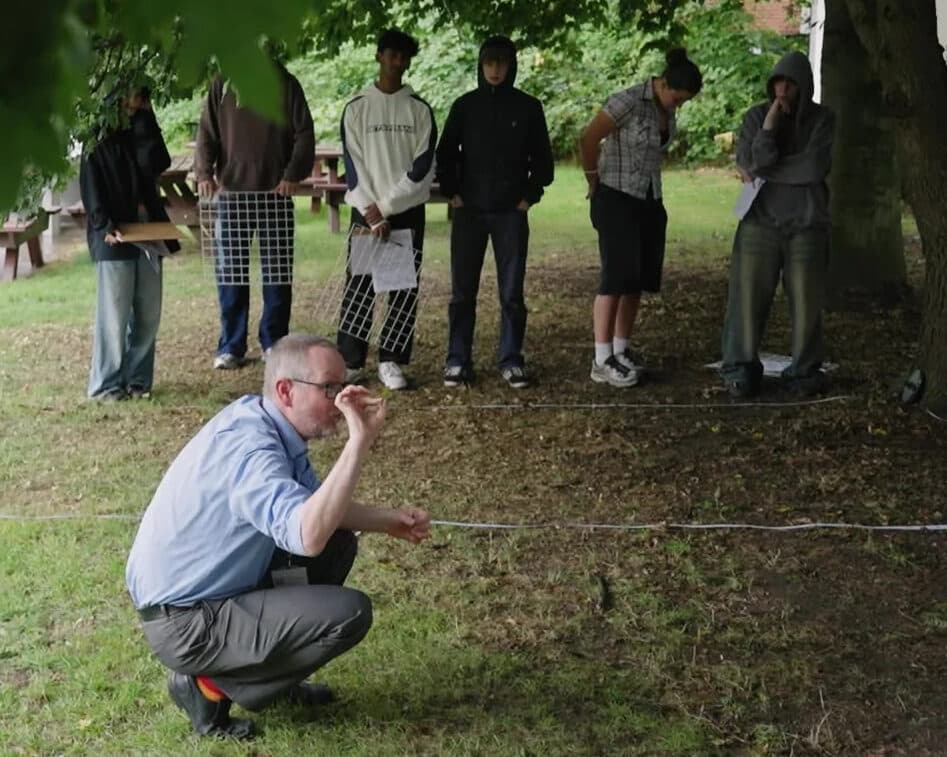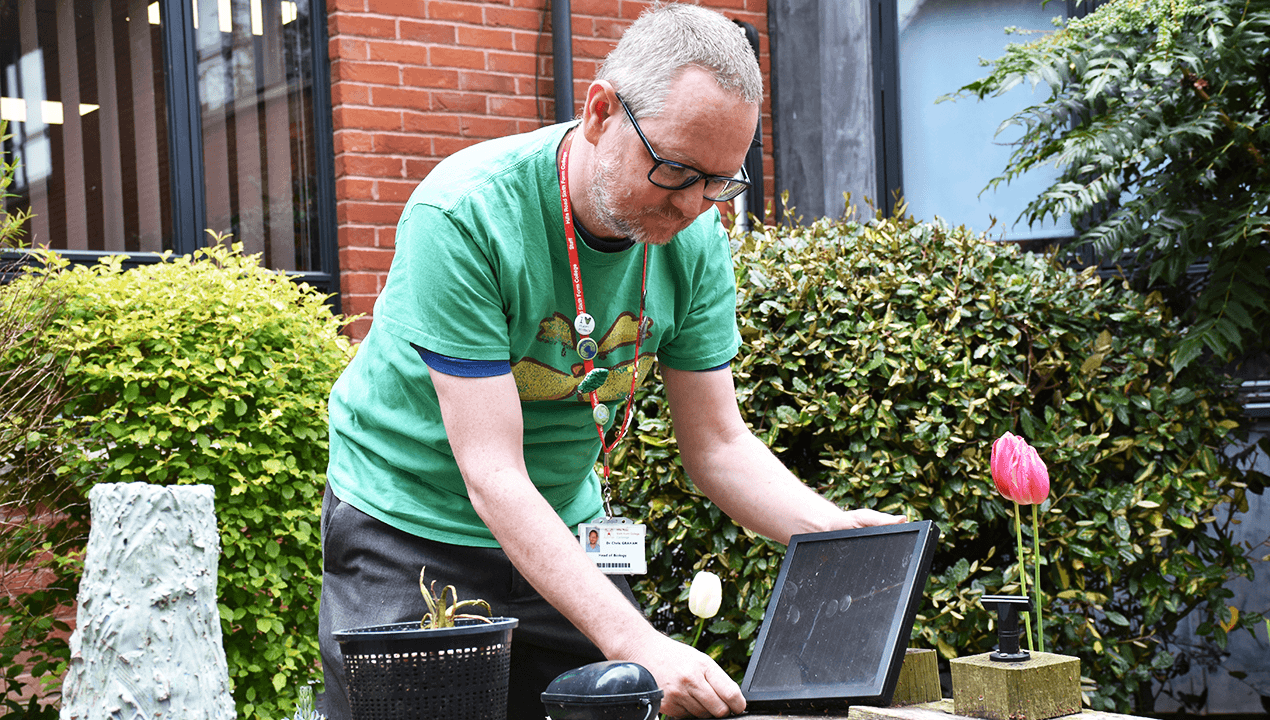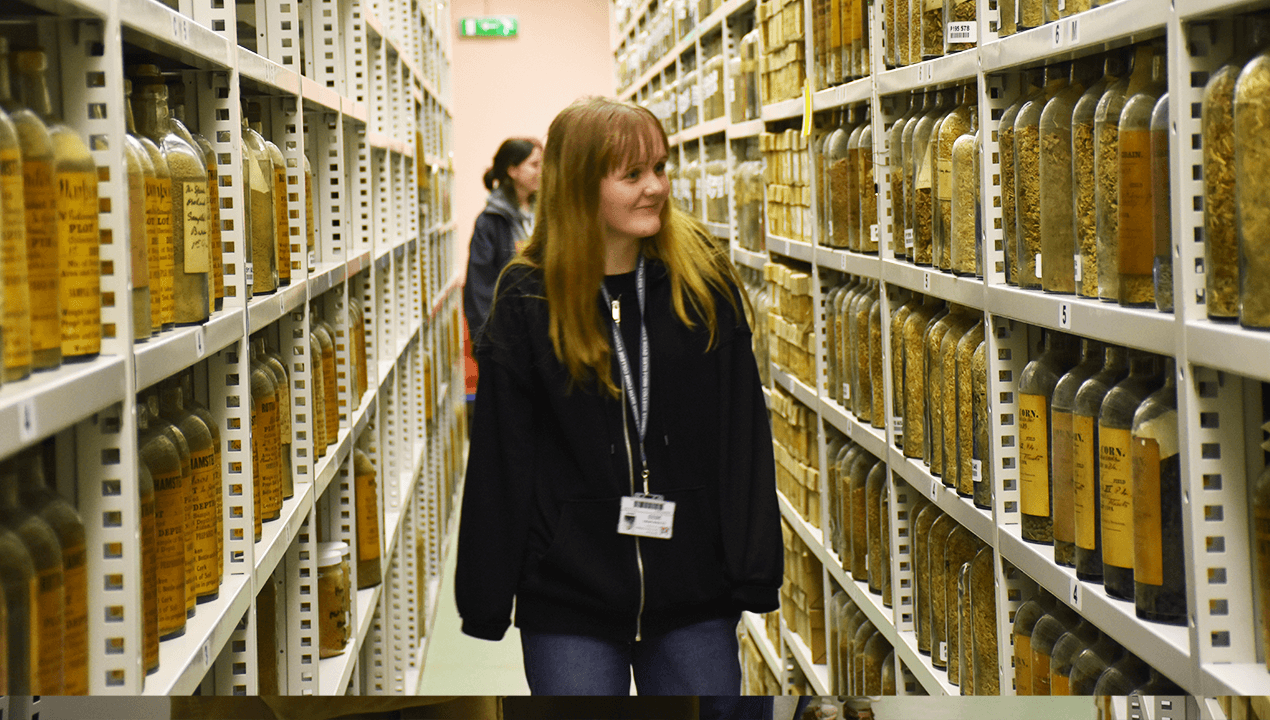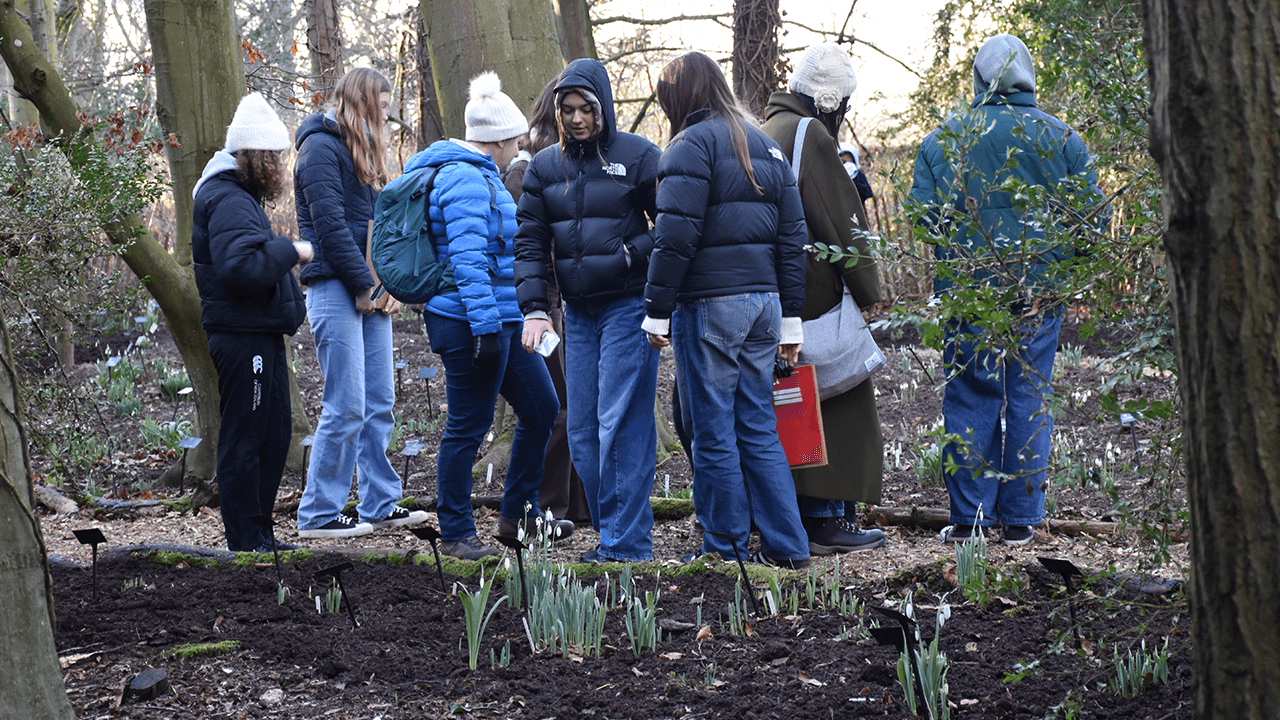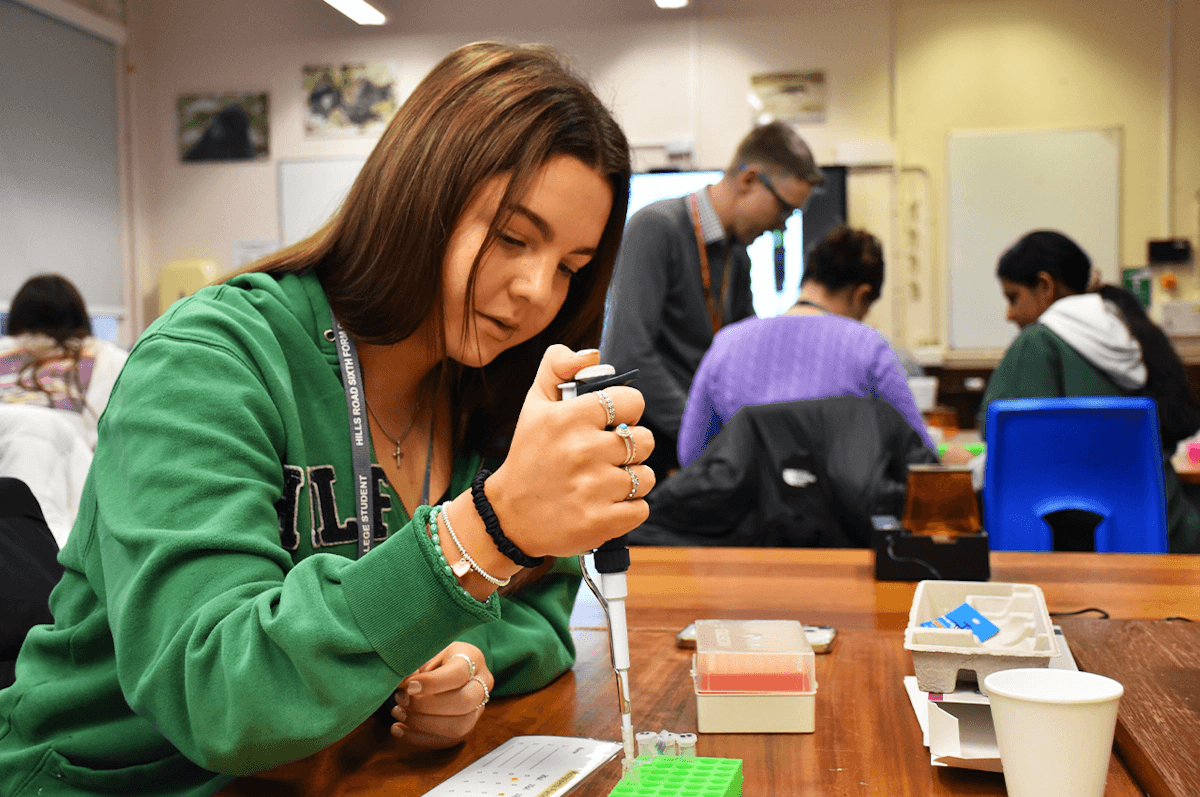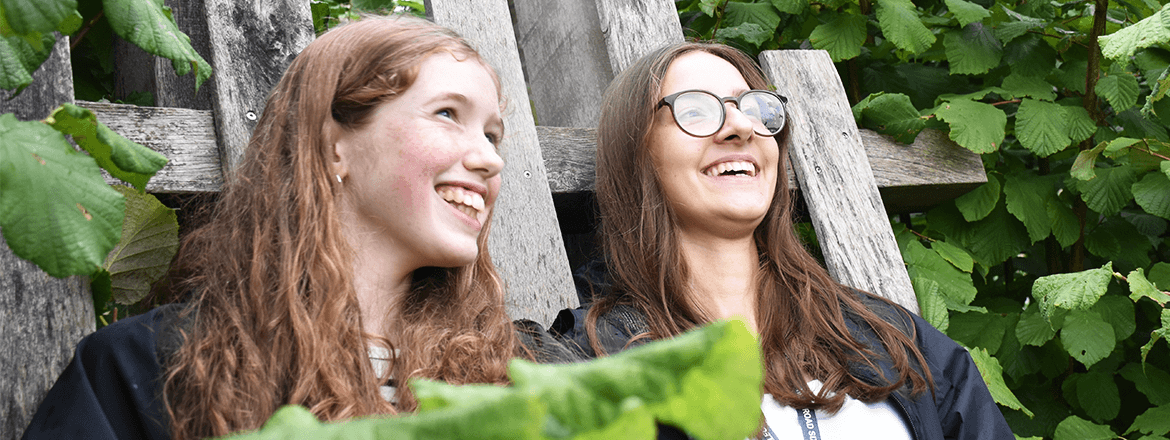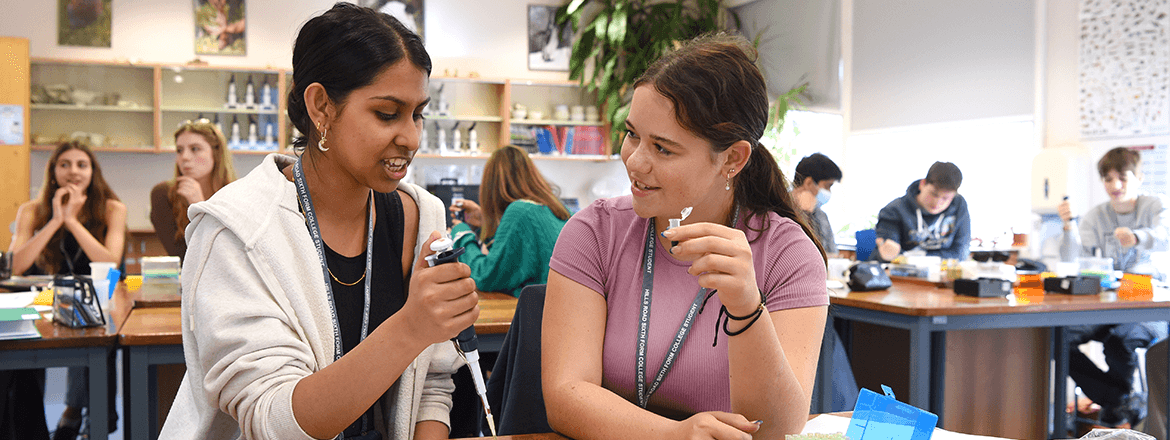Welcome Genome Campus: Hills Road students visit the EMBL-EBI
On 13 November, the team of students visited the Welcome Genome Campus, home of the EMBL-EBI (European Molecular Biology Laboratory – European Bioinformatics Institute), where the DNA the students extract from the snowdrops will be sequenced.
Published on 18/12/2023
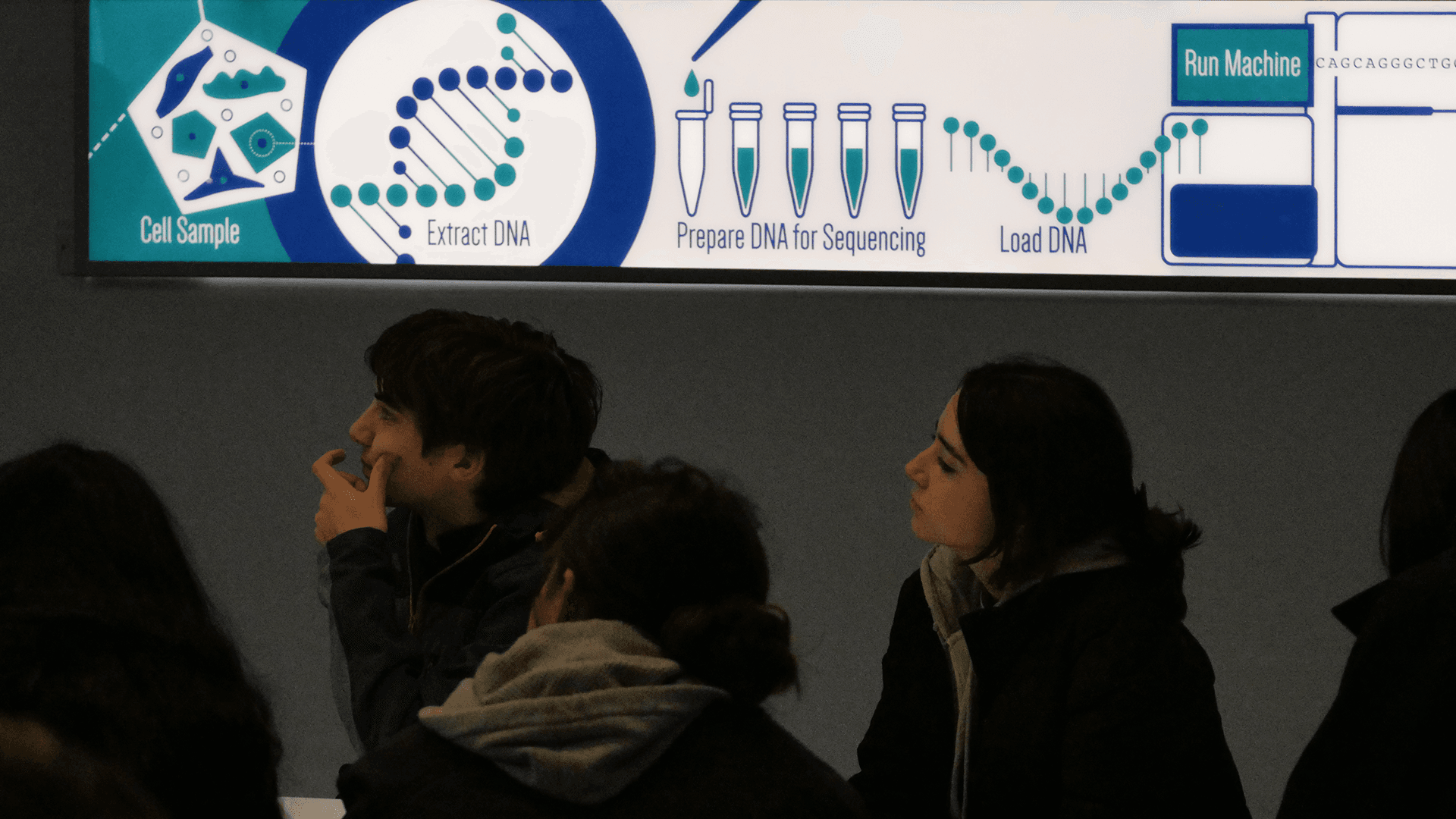
Welcome Genome Campus
Thanks to collaborations between the Royal Society of Biology and Dr Karen Stephens, a team of twenty-four Year 12 students at Hills Road have been given the opportunity to contribute to the Snowdrop DNA project which aims to create a phylogenetic tree of various snowdrop species.
On 13 November, the team of students visited the Welcome Genome Campus, home of the EMBL-EBI (European Molecular Biology Laboratory – European Bioinformatics Institute), where the DNA the students extract from the snowdrops will be sequenced.
The students were welcomed to the campus where they were initially shown a presentation detailing the recent, but rich, history of the site and the renowned ‘Human Genome Project’ which sequenced the entire human genome.
Following this, the team were given a tour around the impressive campus, including the 120-petabyte bioinformatics data storage centre.
After the tour, the students met Dr Sarah Dyer, the Non-Vertebrate Genomics Team Leader, who shared her experience as a professional scientist and presented them some concepts of genetics and bioinformatics. Following this, they completed an interactive activity using open access software to determine the relatedness of different plant species by comparing their amino acids sequences.
At the end of the meeting, there was an opportunity to talk to a team of experienced and knowledgeable scientists to inquire about career paths into molecular biology and bioinformatics.

